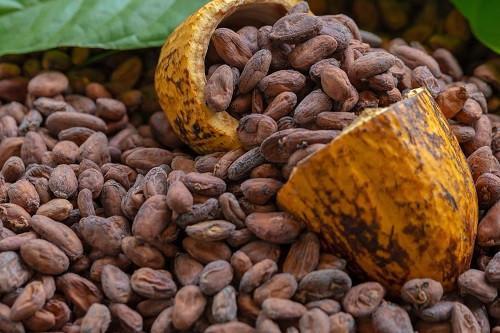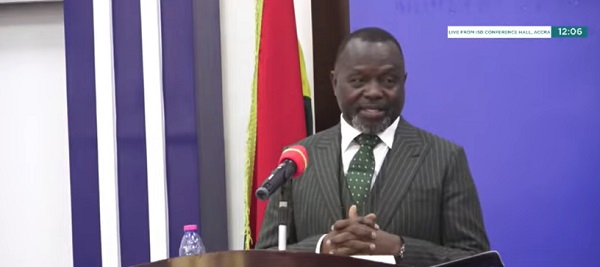Ghana’s cocoa sector is facing a perplexing paradox. According to the latest Auditor General’s Report on the Bank of Ghana’s foreign exchange receipts and payments for the year ended 31st December 2024, the country witnessed a dramatic 50% decline in cocoa bean export volumes — yet experienced a significant 37.5% increase in cocoa export earnings.
The report underscores a growing concern over the sustainability of such gains, especially given the sharp fall in financing through syndicated loans, which traditionally prop up cocoa production and marketing.
In 2024, Ghana exported only 261,248 metric tons of cocoa beans, down from 533,057 metric tons in 2023. This marks a staggering 50.1% decline in raw cocoa exports. Processed cocoa products such as butter, paste, and powder were not spared either — volumes fell from 240,897 metric tons in 2023 to 192,429 metric tons in 2024. These numbers point to underlying structural and agronomic challenges in the sector, including climate change impacts, disease outbreaks, smuggling to neighboring countries, and limited access to farm inputs.
Cocoa Earnings Surge on Global Price Boom
Paradoxically, while physical export volumes fell, total export earnings from cocoa jumped from US$1.26 billion in 2023 to US$1.73 billion in 2024 — a 37.5% increase. This performance, the report reveals, was primarily driven by elevated global cocoa prices.
With international markets reacting to supply constraints from major producers like Ghana and Côte d’Ivoire, prices surged, offsetting the fall in output and lifting Ghana’s foreign exchange receipts beyond the Bank of Ghana’s US$1 billion projection. The resulting US$734 million positive variance provided a fiscal cushion amid broader economic headwinds.
One of the most alarming findings in the Auditor General’s report is the collapse in syndicated cocoa loan inflows. From a healthy US$681 million in 2023, proceeds plunged to just US$50 million in 2024 — a decline of more than 92%. Even more worrying, the US$50 million recorded was not from the usual pre-export syndicated loan, but from a non-collateralized facility used merely to pay off interest on COCOBOD’s existing debts. The drying up of syndicated loan flows poses a direct threat to the cocoa value chain, which depends heavily on this facility for financing seasonal operations, purchasing inputs, and paying farmers.
Cocoa’s Role in Ghana’s Forex Landscape
Despite the challenges, cocoa remained a cornerstone of Ghana’s external trade earnings in 2024, contributing 14.47% of the country’s total foreign exchange inflows of US$11.99 billion. This underscores the strategic importance of cocoa to macroeconomic stability, job creation, and rural livelihoods. However, the reliance on global pricing to drive earnings, rather than increased productivity or value addition, highlights the sector’s vulnerability.
While 2024’s earnings figures provide some relief, experts and stakeholders are raising concerns about the future sustainability of Ghana’s cocoa sector. What happens if global cocoa prices normalize or decline? With production volumes shrinking and financial lifelines like syndicated loans tightening, the sector’s resilience could be tested. There is an urgent call for renewed investment in production capacity, farmer support, and infrastructure to reverse the volume decline.
The 2024 cocoa paradox — falling volumes but rising revenues — may appear promising on the surface, but it reflects deeper fragilities. Ghana cannot afford to be complacent. Policymakers, industry players, and financiers must work in tandem to ensure the cocoa sector does not become a victim of its own temporary success. Without meaningful structural reforms and strategic investments, the sweet earnings of today may turn bitter tomorrow.
READ ALSO: Ghana’s Mid-Year Budget Review Slated For July 24, 2025




















